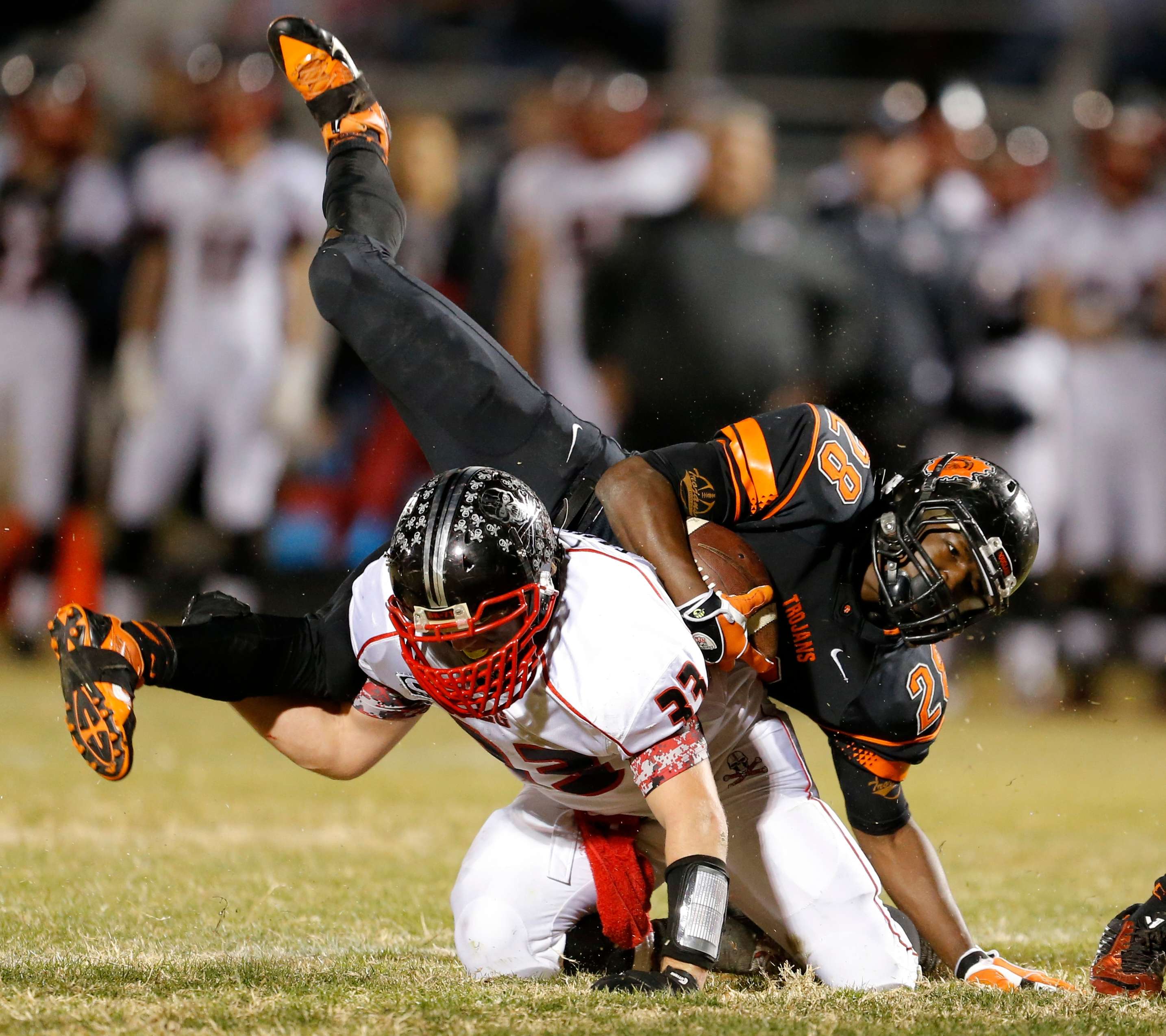Oklahoma court declines to order football game replayed for blown call

Thursday morning, an Oklahoma court declined to order a disputed high school football playoff game redone after the refereeing crew misapplied the rules. The judge's decision wisely raised concern about the consequences of such a ruling. He explained that such a decision would "inevitably usher in a new era of robed referees and meritless litigation." The decision, which can be read in its entirety here, is a model of clarity and sound judicial reasoning.
Judge Bernard M. Jones first explains why there is no legal basis for granting an injunction:
The law requires the existence of a harm that is tied to an underlying right or protected property interest. No such right or interest has been identified by [the school district]; instead, [the school district] relies exclusively on policies it believes [the Oklahoma Secondary School Activities Association (OSSAA)] has either violated or ignored. Reliance on these policies, however, is misplaced. Indeed, the evidence supports that the policies and the exercise of the same are discretionary such that [OSSAA] may elect to intervene or simply remain silent as it has elected to do in the present matter. Mindful of both the breadth of [OSSAA's] discretion in interpreting and applying its policies and the absence of violation or disregard of any mandate, it naturally follows, and the evidence supports, that [the school district] has neither cause of action nor an irreparable harm as defined or require by law. Accordingly, [the school district's] pursuit of injunctive relief is therefore foreclosed and must be denied.
Judge Jones then cites various "public policy concerns" supporting his decision not to grant injunctive relief, which is discretionary with the court:
What transpired during and to some degree after the disputed quarterfinal could be considered by many as a tragedy. More tragic, however, would be for this Court to assert itself in this matter. While mindful of the frustrations of the young athletes who feel deprived by the inaction of [OSSAA], it borders on the unreasonable, and in some respects extends far beyond the purview of the judiciary, to think this Court more equipped or better qualified than [OSSAA] to decide the outcome of any portion of a high school football game. Courts ought not meddle in these activities or others, especially when the parties have agreed to be bound by and have availed themselves to the governance of these activities associations.
Judge Jones next leaves open a rare exception that could be invoked in future extraordinary circumstances:
This is not to say, however, that Courts must always defer to these associations or that the deference is without limitation. There are certainly rare and extraordinary instances where a Court must intervene to safeguard rights and to ensure a level playing field. This, however, is not one of those instances.
Judge Jones finally concludes with reasons why he could not fairly grant relief as requested by the school district:
Though a seemingly harmless and benign request rooted in equity, it is impossible to ensure that the replaying of any portion of the quarterfinal would be fair to all involved. There is simply no way to fully and completely replicate the events and conditions of the disputed quarterfinal in such a way that would alleviate any and all anxiety or question of fairness. Unfortunately, whether in terms of the weather or field conditions, player fatigue, the actions of the coaches or referees, etc., on the day of the quarterfinal, there is no best way to right this wrong without creating even greater uncertainty or inviting further error. Undoubtedly, the pursuit of further judicial action would result in the frustration of the world of athletics as know. This slippery slope of solving athletic contests in court instead of on campus will inevitably usher in a new era of robed referees and meritless litigation due to disagreement with or disdain for decisions of gaming officials - a unintended consequence which hurts both the court system and the citizens it is designed to protect.
So wrote Judge Jones, district judge for the District Court of Oklahoma County. Well said, Judge Jones, well said.
